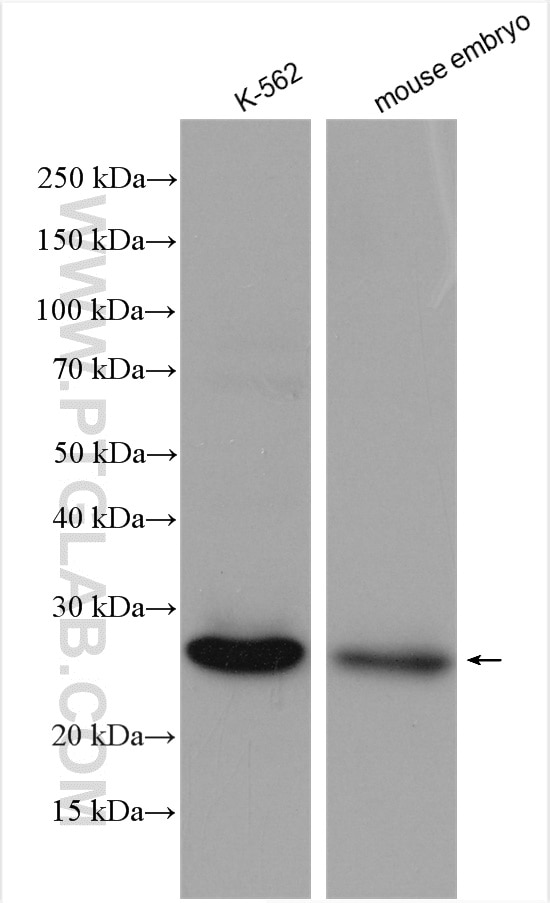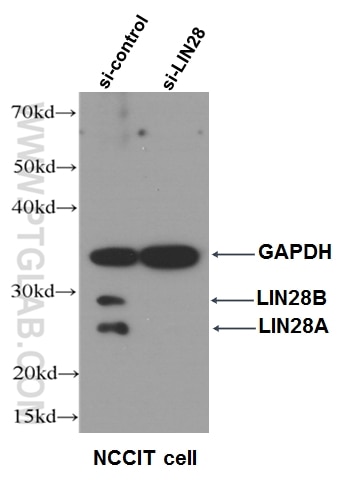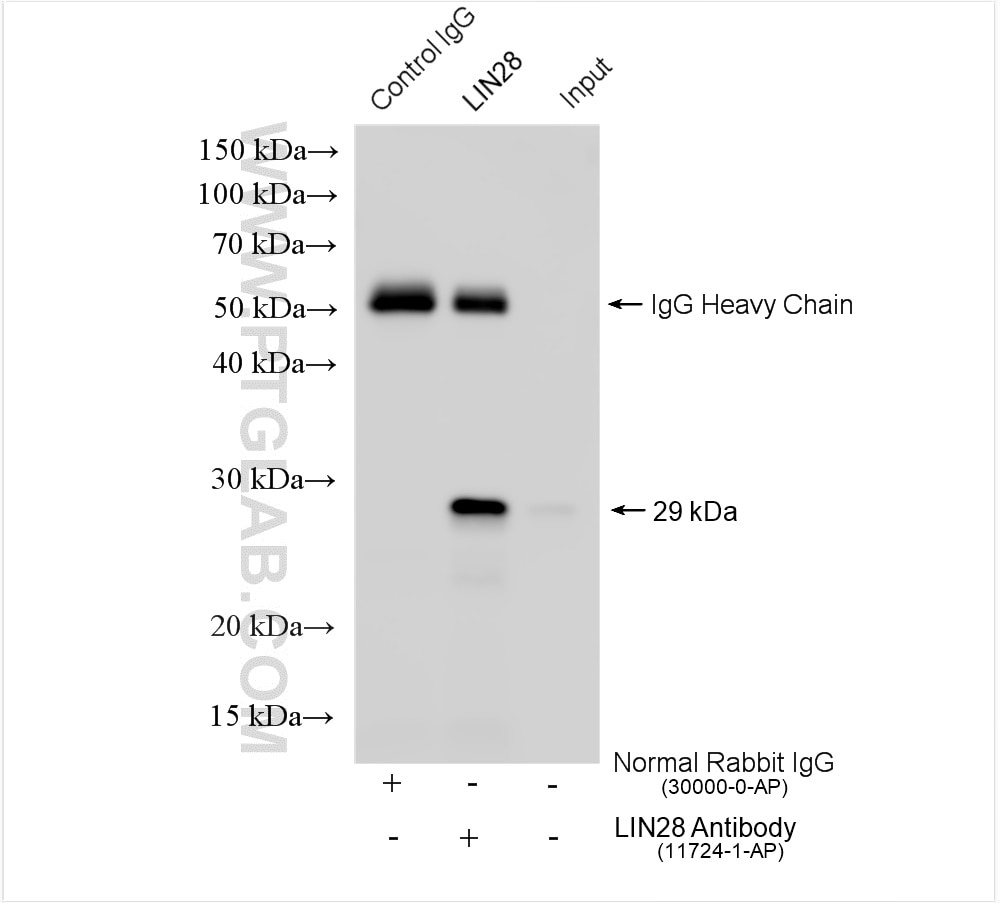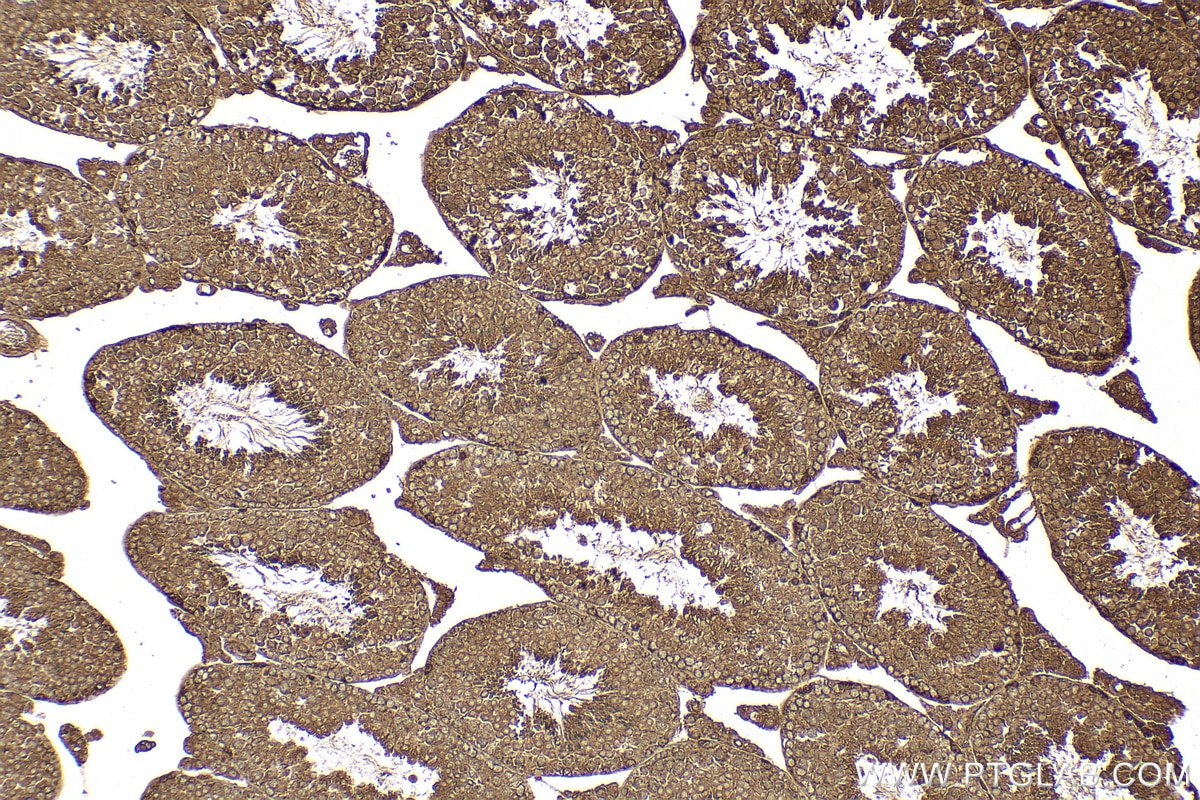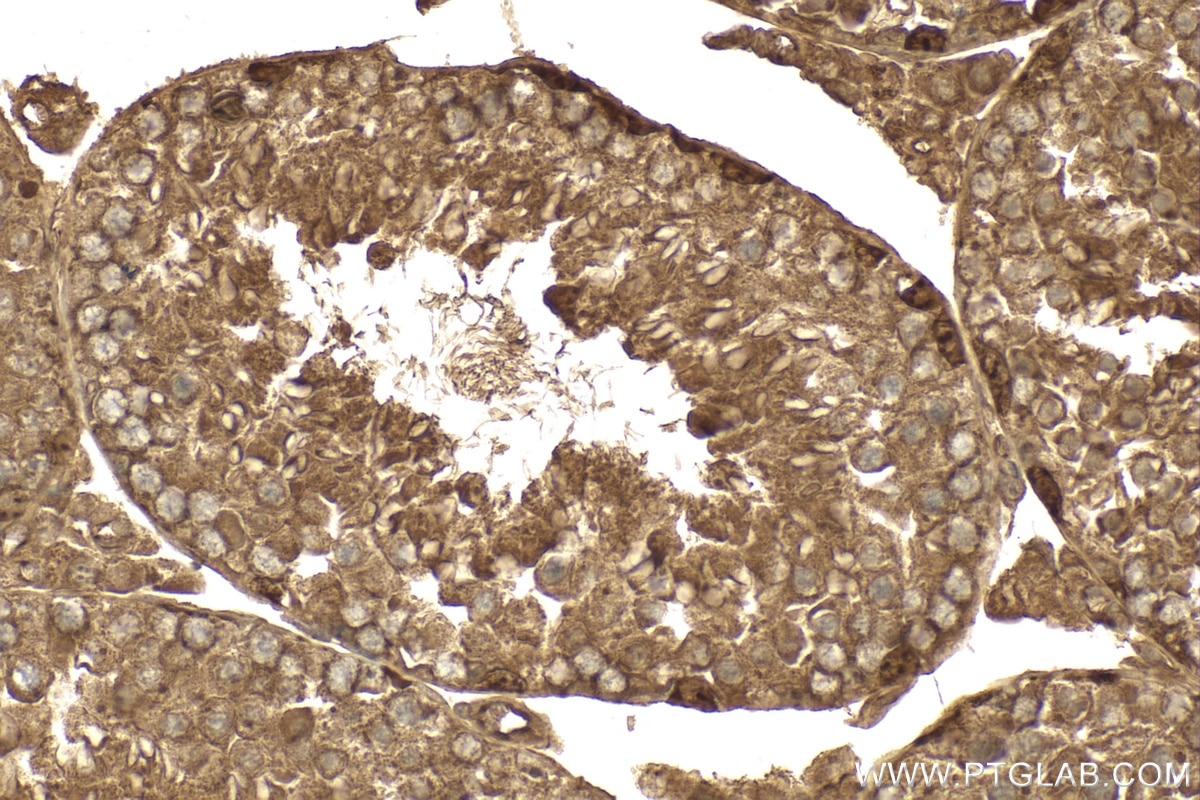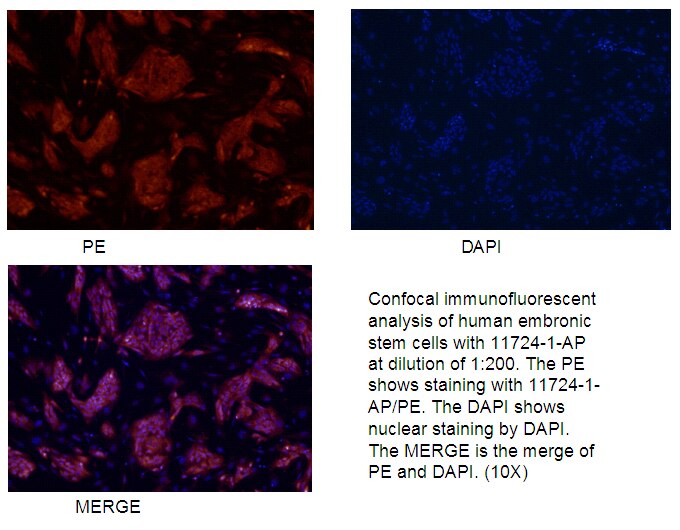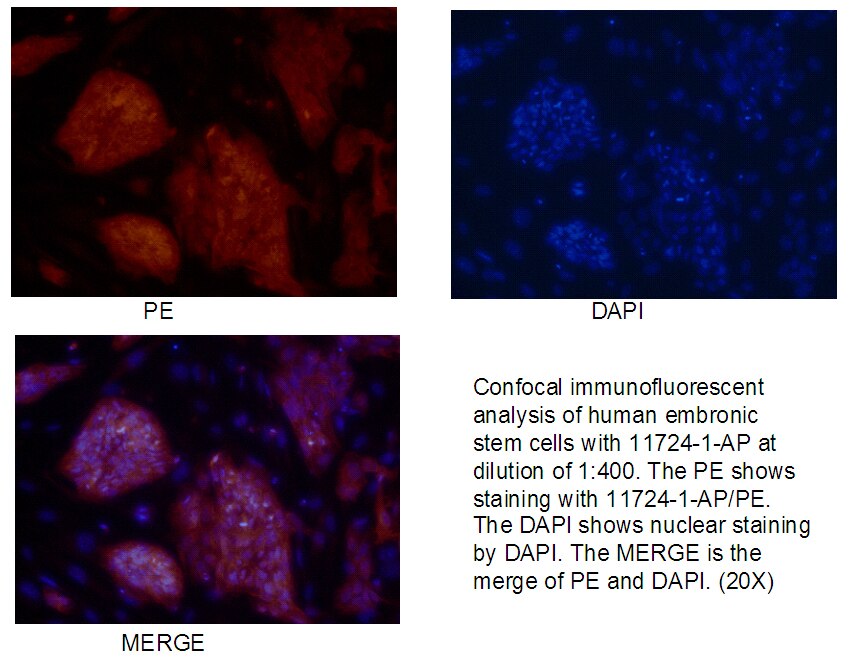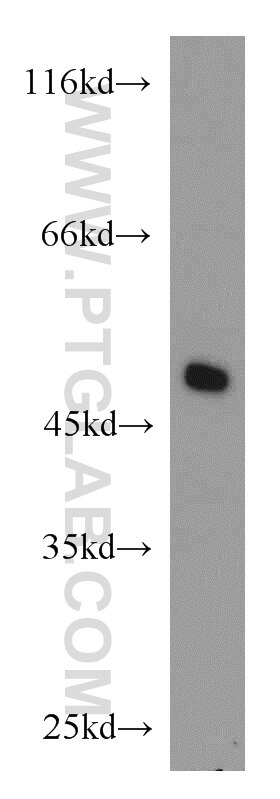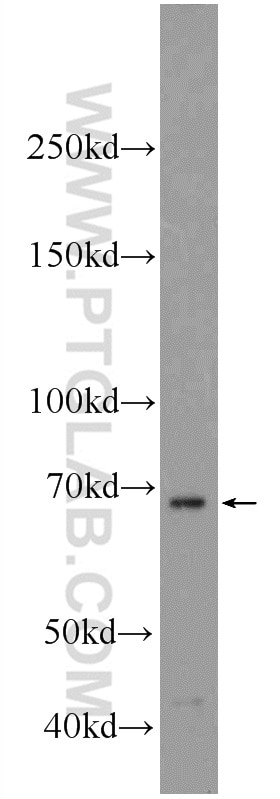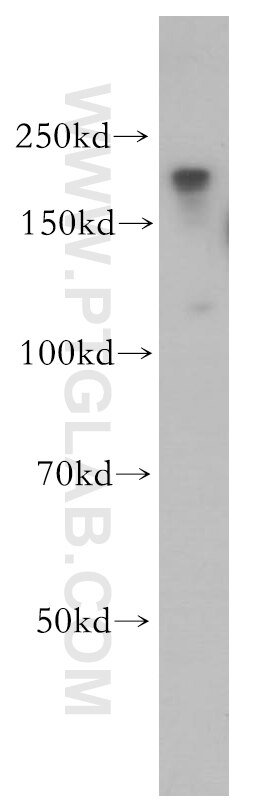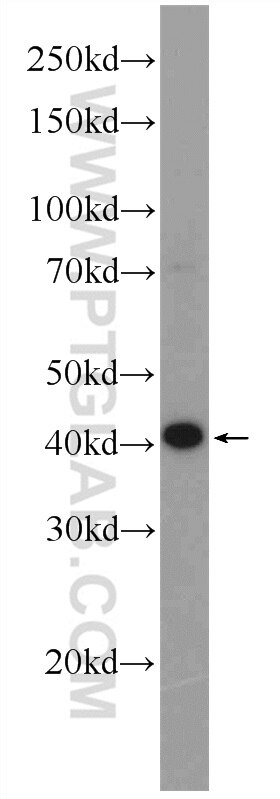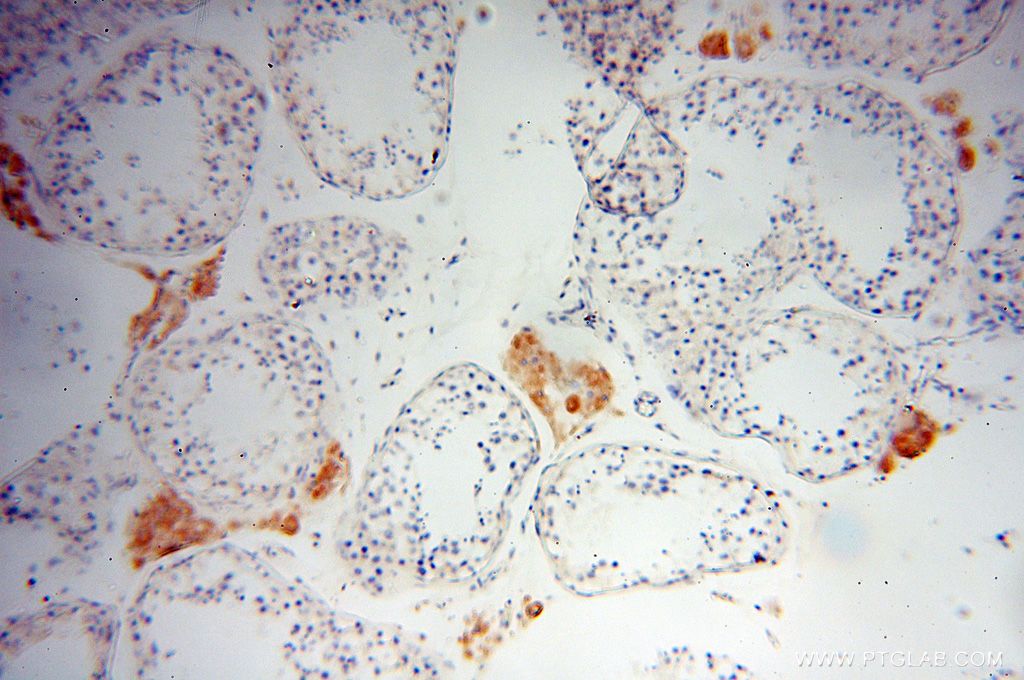- Phare
- Validé par KD/KO
Anticorps Polyclonal de lapin anti-LIN28
LIN28 Polyclonal Antibody for WB, IP, IF, IHC, ELISA
Hôte / Isotype
Lapin / IgG
Réactivité testée
Humain, rat, souris et plus (1)
Applications
WB, IHC, IF/ICC, IP, ELISA
Conjugaison
Non conjugué
N° de cat : 11724-1-AP
Synonymes
Galerie de données de validation
Applications testées
| Résultats positifs en WB | cellules K-562, cellules NCCIT, tissu embryonnaire de souris |
| Résultats positifs en IP | cellules K-562, |
| Résultats positifs en IHC | tissu testiculaire de souris, il est suggéré de démasquer l'antigène avec un tampon de TE buffer pH 9.0; (*) À défaut, 'le démasquage de l'antigène peut être 'effectué avec un tampon citrate pH 6,0. |
| Résultats positifs en IF/ICC | cellules souches embryonnaires humaines |
Dilution recommandée
| Application | Dilution |
|---|---|
| Western Blot (WB) | WB : 1:1000-1:8000 |
| Immunoprécipitation (IP) | IP : 0.5-4.0 ug for 1.0-3.0 mg of total protein lysate |
| Immunohistochimie (IHC) | IHC : 1:50-1:500 |
| Immunofluorescence (IF)/ICC | IF/ICC : 1:20-1:200 |
| It is recommended that this reagent should be titrated in each testing system to obtain optimal results. | |
| Sample-dependent, check data in validation data gallery | |
Applications publiées
| KD/KO | See 2 publications below |
| WB | See 27 publications below |
| IHC | See 18 publications below |
| IF | See 11 publications below |
| IP | See 2 publications below |
Informations sur le produit
11724-1-AP cible LIN28 dans les applications de WB, IHC, IF/ICC, IP, ELISA et montre une réactivité avec des échantillons Humain, rat, souris
| Réactivité | Humain, rat, souris |
| Réactivité citée | rat, canin, Humain, souris |
| Hôte / Isotype | Lapin / IgG |
| Clonalité | Polyclonal |
| Type | Anticorps |
| Immunogène | LIN28 Protéine recombinante Ag2312 |
| Nom complet | lin-28 homolog (C. elegans) |
| Masse moléculaire calculée | 209 aa, 23 kDa |
| Poids moléculaire observé | 28 kDa |
| Numéro d’acquisition GenBank | BC028566 |
| Symbole du gène | LIN28 |
| Identification du gène (NCBI) | 79727 |
| Conjugaison | Non conjugué |
| Forme | Liquide |
| Méthode de purification | Purification par affinité contre l'antigène |
| Tampon de stockage | PBS avec azoture de sodium à 0,02 % et glycérol à 50 % pH 7,3 |
| Conditions de stockage | Stocker à -20°C. Stable pendant un an après l'expédition. L'aliquotage n'est pas nécessaire pour le stockage à -20oC Les 20ul contiennent 0,1% de BSA. |
Informations générales
LIN28 is one of the four key human factors (OCT4, SOX2, NANOG and LIN28) used to reprogram human fibroblasts to an embryonic stem (ES) cell-like state known as the induced pluripotent stem (Ips) cell[PMID: 20139967]. Lin28 is a marker of undifferentiated human embryonic stem cells and a cytoplasmic Mrna-binding protein that binds to and enhances the translation of the IGF2 Mrna[PMID: 21057460]. LIN28 has also been shown to bind to the let-7 pre-miRNA and block production of the mature let-7 microRNA in mouse embryonic stem cells[PMID: 22078496]. Affinity purified rabbit anti-LIN28 can be used to demonstrate pluripotency of ES and Ips cells, and to detect LIN28 transgene expression in the process of reprogramming. This antibody is a rabbit polyclonal antibody raised against full length LIN28 of human origin. The calculated molecular weight of LIN28 is 23 kDa, but the modified LIN28 is about 28 kDa.
Protocole
| Product Specific Protocols | |
|---|---|
| WB protocol for LIN28 antibody 11724-1-AP | Download protocol |
| IHC protocol for LIN28 antibody 11724-1-AP | Download protocol |
| IP protocol for LIN28 antibody 11724-1-AP | Download protocol |
| Standard Protocols | |
|---|---|
| Click here to view our Standard Protocols |
Publications
| Species | Application | Title |
|---|---|---|
Nat Genet Lin28 promotes transformation and is associated with advanced human malignancies. | ||
Nat Genet Lin28a transgenic mice manifest size and puberty phenotypes identified in human genetic association studies. | ||
Cell Stem Cell Human iPSC-Derived Neural Progenitors Are an Effective Drug Discovery Model for Neurological mtDNA Disorders. | ||
Cell Res Ythdc2 is an N(6)-methyladenosine binding protein that regulates mammalian spermatogenesis. |
